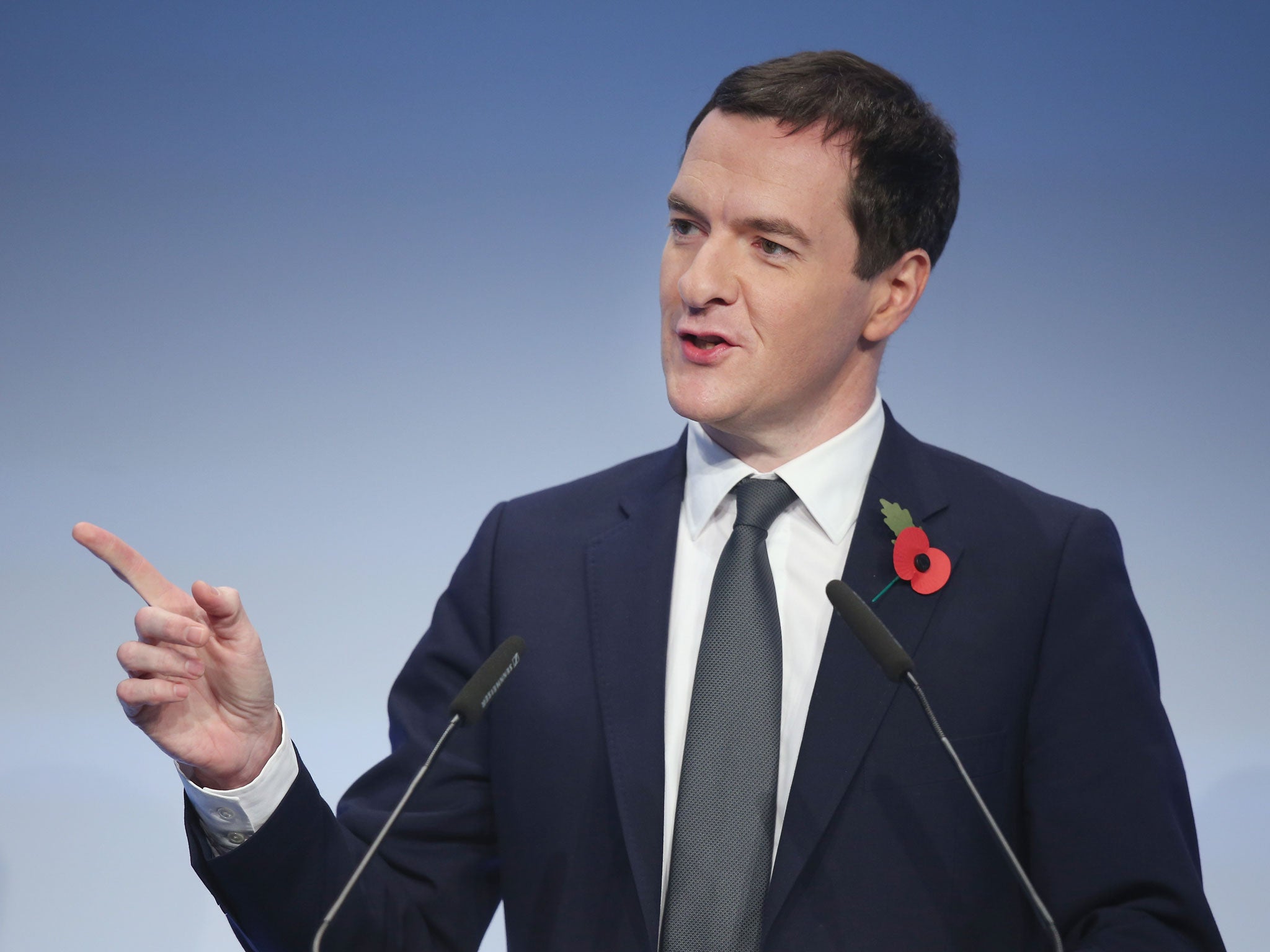George Osborne's Autumn Statement: Five things you need to know
The Chancellor will deliver the Autumn Statement on 25 November, and the main thrust is likely to be on more squeezes

When is it?
Next Wednesday, 25 November, George Osborne will deliver his latest Autumn Statement.
What will the Chancellor say?
Good question. Don't hold your breath expecting any good news. There's no need for the Government to include any vote-winning policies now, so the main thrust is likely to be on more squeezes, with perhaps a little more tax help for Tory chums in big businesses and wealthy overseas-based London landowners.
Anything in particular expected?
It is rumoured the Chancellor may look to reduce the higher rate of stamp duty land tax to ease the burden on those at the top of the property chain – in short, well-heeled traditional Tory voters. He is also expected to reveal cash-raising plans to privatise the Land Registry. That would be likely to bring in more than £1bn for the Treasury but it "would be a disaster", according to one property lawyer.
So no good news?
There have been calls for a change in pension tax incentives to encourage more middle and lower-income earners to stash money in their retirement pots. Currently, basic-rate taxpayers get 20 per cent tax relief and higher- rate payers 40 per cent. There has been talk of a flat 30 per cent relief ,which would encourage many more to put money into their pension. But Neil Lovatt of Scottish Friendly wants a contribution scheme "that limits the government to matching pension contributions up to a defined monthly limit".
However, all could be disappointed as the Treasury recently said it intends to delay any decision on pension tax incentives until at least next year's Budget.
What about increasing the Isa limit?
It could happen, reckons Iain McCluskey, the tax director at accountancy firm PwC. He said: "The current Isa limit is £15,240, and while not everyone will utilise the full allowance in a typical year, any increase in the Isa limit could give additional relief and will be relatively cheap as a policy."
Join our commenting forum
Join thought-provoking conversations, follow other Independent readers and see their replies
Comments
Bookmark popover
Removed from bookmarks